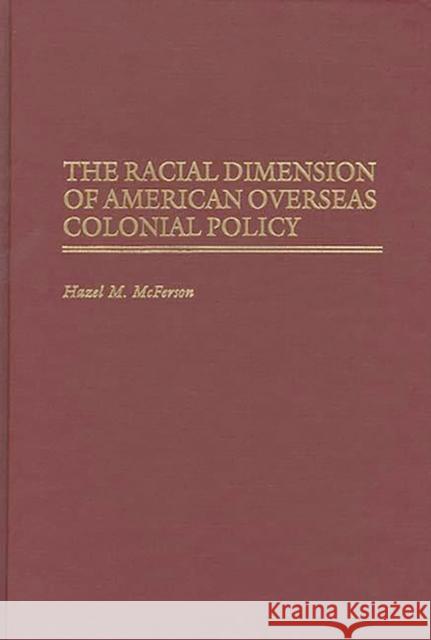The Racial Dimension of American Overseas Colonial Policy » książka
The Racial Dimension of American Overseas Colonial Policy
ISBN-13: 9780313289965 / Angielski / Twarda / 1997 / 208 str.
Beginning in 1898, the United States won overseas colonies as the spoils of the Spanish-American War: Puerto Rico, the Philippines, and Cuba. Guam and Hawaii were also acquired in that year, and in 1917, the Danish Antilles became the United States Virgin Islands. The racial heritage of the territorial inhabitants paralled that of nonwhite groups in the United States: Native Americans, Africans, Asians, Hispanics, and mixed-race people. The nonwhite race of domestic and overseas colonial people established important links between American domestic racial policies and the racial policies and the racial dimension of American overseas colonies. This book is about these links, as shaped by the prevailing racial tradition and social structure in the United States itself. Crucial to examining these links is the little-known role of Booker T. Washington in shaping American overseas colonial policy. It is argued that following colonial acquisition at the turn of the century, the American racial tradition was exported to overseas territories, thereby largely determining colonial policy and administrative practices, the nature of social and racial conflict, and the direction and pace of political evolution in the territories.











